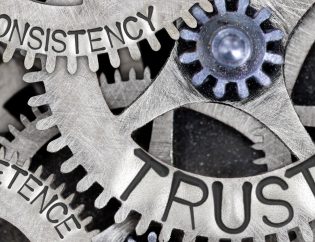Talent Acquisition:
The 10 Lessons I learned from evaluating, testing and selecting over 56,000 applicants in the last 10 years.
Lesson 3

INTRODUCTION
3. THE BIGGEST MISTAKE IN HIRING
Of all the mistakes I have made and observed with recruiters, the deadliest one by far has always been related to a misunderstanding of the word “personality.” This led me to write my latest Bestseller, “Taking off the Mask.”
The American heritage Dictionary provides a very interesting definition of the word:

“The totality of qualities and traits, as of character or behavior, that are peculiar to a specific person. Or: The collection of distinctive qualities of a person, especially those distinguishing personal characteristics that make one socially appealing – or not.”
Interestingly, when you check the etymology of the word “personality,” you come up with the word persona, which literally means character. The early origin of the word was actually associated to various characters in a play, where actors would play different characters. And the way to differentiate those characters was to wear different masks.
Hence, personality was originally related to wearing a mask.
You might have observed (at least once) that a candidate would look great during the recruitment interview, only to appear very different a couple of months later. What happened? Well, what happened was that you were interviewing someone who was wearing one or more masks - in other words, they would show you the best of themselves during the interview, but not necessarily their real, chronic personality.
So here is the deadliest mistake you want to avoid in hiring: interviewing and evaluating a candidate, not being aware that you may be evaluating a mask. The key question to ask yourself is: Will the person I see today be the same person tomorrow (or in the next three months)?
Knowing that 53% of resumes contain lies and over 30% of them contain gross lies, you definitely want to detect during the recruitment process any possibility of FALSE or temporary personality traits, otherwise called masks.
Personality versus soft skills:
How does personality differ from soft skills? The answer is simple: Many soft skills cannot be developed if the right personality traits are absent in a candidate’s general character. Soft skills can, to a certain degree, be developed and/or improved. But they largely depend on personality traits that are definitely harder to change.
Personality traits can be considered as features of a person's character that are an existing aspect of their life endowment and sometimes developed through life experience. On the other hand, soft skills are qualities that one has developed (or potentially could develop), thanks to specific personality traits.
- For example, empathy is a personality trait. It can be somehow improved overtime, but not easily. Empathy is needed in order to be a good leader – leadership being a vital soft skill. However, there are other personality traits needed to make a great leader.
- For example, team spirit is an important soft skill that requires the willingness to contribute to the success of a group. That willingness depends, among other personality traits, upon empathy.
So, we could agree that many soft skills depend upon specific personality traits. And the absence of specific personality traits could lead to major difficulties in demonstrating the right set of soft skills for a specific position.
Example:
Being a good negotiator is definitely a vital soft skill to be successful as a sales professional. The question is, how do you evaluate and recognize a good negotiator? Some specific personality traits common to all great negotiators are:
Active communicator – being able to (1) listen and (2) ask the right questions
- Persistent
- Assertive
- Extrovert
- Curious
- Hungry
- Honest
- Passionate
- Etc.
If you look at those attributes above, you can recognize that they are part of one's personality - all needed to make up the soft skill of “being a great negotiator.”

Conclusion
In order to evaluate if a candidate possesses the needed soft skills for a specific position, you must be able to detect the related personality traits that make up such soft skills.
Too many recruiters make the fatal mistake of (1) ignoring what soft skills are needed to perform successfully on the job and (2) failing to analyze if a candidate possesses the right set of personality traits that are necessary to make up the needed soft skills for a specific position.
At Hirebox, we offer the most thorough and precise soft skills assessment, which in fact evaluates specific personality traits that make up the soft skill package needed to ensure success on a specific job. Ask for your 2-week free trial if you have no experience with our testing platform.
Best success!
Patrick Valtin,
CEO Hirebox










You must be logged in to post a comment.